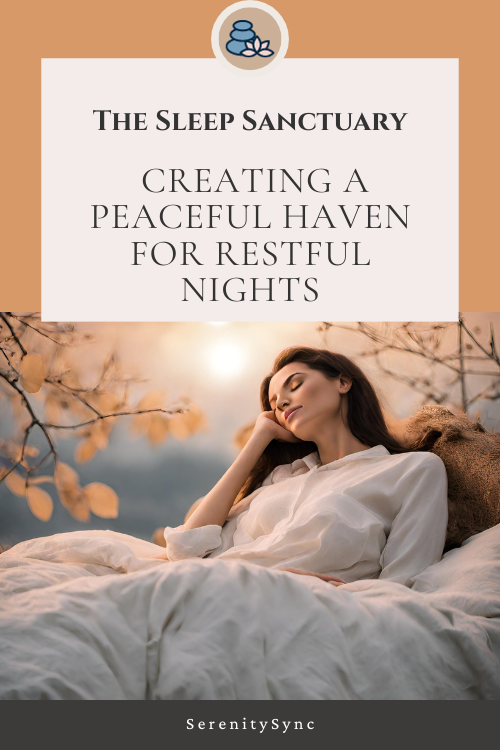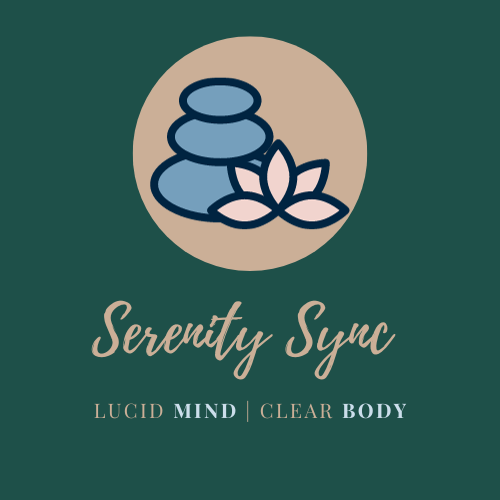In Brief
Creating a peaceful sleep sanctuary is essential for a restful night’s sleep. By focusing on key aspects such as comfort, ambiance, and relaxation techniques, you can transform your bedroom into a tranquil haven. This blog post explores the top five topics related to creating a sleep sanctuary and provides practical tips and insights to help you achieve a peaceful and restful nights’ sleep.

1: Comfort is Key
When it comes to your sleep sanctuary, comfort should be a top priority. Here are three key aspects to consider:
-
A Supportive Mattress
Invest in a high-quality mattress that provides the right amount of support for your body. A mattress that is too firm or too soft can lead to discomfort and restless nights.
-
Pillows Galore
Experiment with different types of pillows to find the perfect one for your sleeping style. Whether you prefer a firm or fluffy pillow, finding the right one can make a world of difference in your comfort level.
-
Luxurious Bedding
Choose soft, breathable sheets and cozy blankets to create a comfortable and inviting sleep environment. Opt for natural materials like cotton or bamboo for optimal comfort.
2: Setting the Mood
Creating a peaceful ambiance in your sleep sanctuary can greatly enhance your sleep quality. Consider the following:
-
Soft Lighting
Use dimmable lights or bedside lamps with warm-toned bulbs to create a calming atmosphere. Avoid harsh, bright lights that can disrupt your sleep cycle.
-
Natural Elements
Incorporate natural elements like plants or a small indoor fountain to bring a sense of tranquility to your bedroom. These elements can also improve air quality and promote relaxation.
-
Aromatherapy
Experiment with essential oils like lavender or chamomile to create a soothing scent in your sleep sanctuary. Use a diffuser or spray a few drops on your pillowcase for a calming effect.
3: Relaxation Techniques
Practicing relaxation techniques before bed can help calm your mind and prepare your body for sleep. Try incorporating these into your bedtime routine:
-
Meditation
Spend a few minutes each night practicing mindfulness meditation. Focus on your breath and let go of any racing thoughts. This can help quiet your mind and promote relaxation.
-
Progressive Muscle Relaxation
Starting from your toes and working your way up to your head, tense and release each muscle group in your body. This technique can help release tension and promote overall relaxation.
-
Deep Breathing Exercises
Breathe in deeply through your nose, hold for a few seconds, and exhale slowly through your mouth. Repeat this pattern several times to trigger your body’s relaxation response.
4: Managing Noise and Distractions
Noise and distractions can disrupt your sleep and prevent you from achieving a restful night. Consider these strategies to minimize disturbances:
-
White Noise
Use a white noise machine or a smartphone app to drown out external sounds that may disrupt your sleep. White noise can create a soothing background sound that masks other noises.
-
Earplugs
If you’re sensitive to noise, consider using earplugs to block out sounds that may disturb your sleep. Choose earplugs that are comfortable and provide adequate noise reduction.
-
Limit Electronic Devices
Avoid using electronic devices, such as smartphones or tablets, in the bedroom. The blue light emitted by these devices can interfere with your body’s natural sleep-wake cycle.
5: Establishing a Bedtime Routine
A consistent bedtime routine can signal to your body that it’s time to wind down and prepare for sleep. Consider the following elements for an effective routine:
-
Wind-Down Activities
Engage in relaxing activities before bed, such as reading a book, taking a warm bath, or practicing gentle stretches. These activities can help transition your mind and body into a state of relaxation.
-
Avoid Stimulants
Avoid consuming stimulants like caffeine or nicotine in the evening, as they can interfere with your ability to fall asleep. Opt for herbal tea or decaffeinated alternatives instead.
-
Consistent Sleep Schedule
Go to bed and wake up at the same time every day, even on weekends. This helps regulate your body’s internal clock and promotes a more restful sleep.
Fun Fact: The Power of Lavender
Lavender has been shown to promote relaxation and improve sleep quality. It has a calming effect on the nervous system, making it an ideal scent for your sleep sanctuary.
Conclusion
Creating a sleep sanctuary is essential for achieving restful nights. By prioritizing comfort, setting the right ambiance, practicing relaxation techniques, managing noise and distractions, and establishing a bedtime routine, you can transform your bedroom into a peaceful haven for restful sleep. Sweet dreams!

